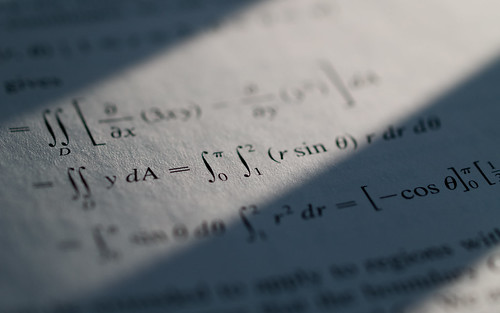(Another in the continuing series of quotes to start the week.)
Today is British physicist Paul Dirac’s birthday (8 August 1902 – 20 October 1984). Dirac shared the 1933 Nobel Prize with Erwin Schrodinger, and is known as one of the founders of quantum physics.
Dirac was a rather famous atheist — his colleague Wolfgang Pauli was said to have remarked, “Our friend Dirac, too, has a religion, and its guiding principle is ‘God does not exist and Dirac is His prophet'” — but later in life he wrote a quite eloquent statement about God and the mathematical relations that describe our universe. In a piece in the May 1963 issue of Scientific American entitled “The Evolution of the Physicist’s Picture of Nature,” he wrote (emphasis added):
It seems to be one of the fundamental features of nature that fundamental physical laws are described in terms of a mathematical theory of great beauty and power, needing quite a high standard of mathematics for one to understand it. You may wonder: Why is nature constructed along these lines? One can only answer that our present knowledge seems to show that nature is so constructed. We simply have to accept it. One could perhaps describe the situation by saying that God is a mathematician of a very high order, and He used very advanced mathematics in constructing the universe. Our feeble attempts at mathematics enable us to understand a bit of the universe, and as we proceed to develop higher and higher mathematics we can hope to understand the universe better.
Later still, Dirac was quoted as having said simply, “God used beautiful mathematics in creating the world.”
Are we to conclude that Dirac, who in 1927 said, “If we are honest — and scientists have to be — we must admit that religion is a jumble of false assertions, with no basis in reality. The very idea of God is a product of the human imagination,” found God in later life? Did something in the nature of quantum mechanics point him toward the divine?
The language of mathematics … it’s more than a little Greek. (Image: “The Beauty of Mathematics” by Peter Rosbjerg, from Flickr under Creative Commons.)
It would seem not. Instead of coming to believe in the existence of God, Dirac accepted the possibility of God’s existence, and even the necessity of God in certain circumstances:
I would like … to set up this connexion between the existence of a god and the physical laws: if physical laws are such that to start off life involves an excessively small chance, so that it will not be reasonable to suppose that life would have started just by blind chance, then there must be a god, and such a god would probably be showing his influence in the quantum jumps which are taking place later on. On the other hand, if life can start very easily and does not need any divine influence, then I will say that there is no god.
That’s an interesting idea, though I wonder (a bit playfully, perhaps) if the physical laws of our universe are such that to produce a Paul Dirac (or a you, or a me) involves “an excessively small chance.” There have been, after all, only one of each of us in all the universe.
Even as powerful a mind as Dirac’s could not solve all the equations of the universe, and I certainly can’t. So I am content to let God be God and handle the beautiful and mysterious mathematics of creation.










Correction: I suspect that if one . . .
I suspect that one is willing to equate a belief in God with a belief that the universe has some ultimate purpose, even if that purpose has not yet been established or even come into existence yet, there is a higher percentage of believers among science fiction readers than in most groups.